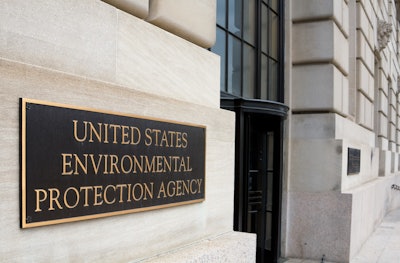
RENO, Nev. (AP) — Nevada is dropping its long-held opposition to having a World War II-era copper mine added to the priority list of the nation's most polluted Superfund sites, Gov. Brian Sandoval said in a letter Tuesday to the U.S. Environmental Protection Agency.
Sandoval said he was reluctantly agreeing with the agency's latest proposal, which would make $31 million available to help clean up the abandoned Anaconda mine.
The mine in Yerington, about 80 miles southeast of Reno, already is a federal Superfund site, a designation that brought federal help with containing pollution — some of it radioactive — and pinpointing its source.
Adding the site to the National Priority List would make it eligible for federal money to pay for 90 percent of the tens of millions of dollars needed to start cleanup of the most highly contaminated waste ponds.
Like his two fellow Republican predecessors, Sandoval told the EPA in recent months he wasn't yet willing to support the listing because of continued resistance from some local businesses and community leaders. They were concerned about the stigma of Superfund status and the potential harm to property values.
But Sandoval said Tuesday he's convinced it's the best path forward based in part on the agency's efforts to cooperate with local leaders and its assurances the federal money will be put on a fast track. He also said the state maintains the option to pursue its own cleanup plan if private funding becomes available, and that the EPA indicated the state won't have to provide the required 10 percent in matching funds up front.
"Today we have achieved a major milestone toward a full and swift clean-up of the site," Sandoval said in a statement released by his office.
The cleanup is expected to begin as soon as next year on polluted waste ponds that have the potential to leak or overflow by 2019.
In 2013, the mine's rural neighbors won a $19.5 million settlement from companies they accused of covering up the contamination of drinking water wells for decades. EPA tests showed uranium, arsenic, lead and other toxic chemicals from the mine had tainted rural wells.
Sen. Harry Reid, D-Nev., has been pressing for the Superfund priority since the EPA first proposed it in 2001. He congratulated Sandoval for doing the right thing and negotiating a "real good deal."
Reid predicted it would benefit agriculture and help attract new businesses and home construction to the rural county.
"You can't do that right now because the land is too poisoned," Reid told the AP. "It's got every bad element that you can find in the ground."
The mine covers 6 square miles owned partly by the U.S. Bureau of Land Management. Atlantic Richfield acquired the property in 1977 from Anaconda Copper, which built the mine in 1941. Fueled by demand after WWII, Anaconda produced 1.7 billion pounds of copper from 1952 to 1978.
The site's most recent owner, Arimetco, abandoned it in 2000.
EPA regional administrator Jared Blumenfeld said in a Dec. 22 letter to Sandoval that the most immediate threat was the estimated 90 million gallons of acidic solution that Arimetco left in the heap leach and fluid management system.
"The reason for urgency is that funding needs to be in place well before the current pond capacity is exceeded," Blumenfeld wrote. He said the situation demands constant management to avoid further leakage from the storage ponds, or an overflow.
Peggy Pauly, one of the plaintiffs in the earlier lawsuit whose home borders the mine site, helped organize the Yerington Community Action Group that joined the push for priority listing in 2004.
"We are thankful that the cleanup can be moved forward to eliminate the ongoing source of contamination to the soil, air and groundwater in our community," Pauly said.
Laurie Thom, chairman of the neighboring Yerington Paiute Tribe, also praised the move the tribe believes is vital to protecting its natural resources.
Yerington city and Lyon County officials have been some of the loudest critics of listing in the past. But Mayor George Dini and Lyon County Manager Jeffrey Page said Tuesday they support the deal negotiated by the governor.
"The Lyon County Commission continues to be assured that there are no immediate concerns to our constituents but we recognize it is in the best interest to work with the EPA toward reclamation of the site," Page said.






















